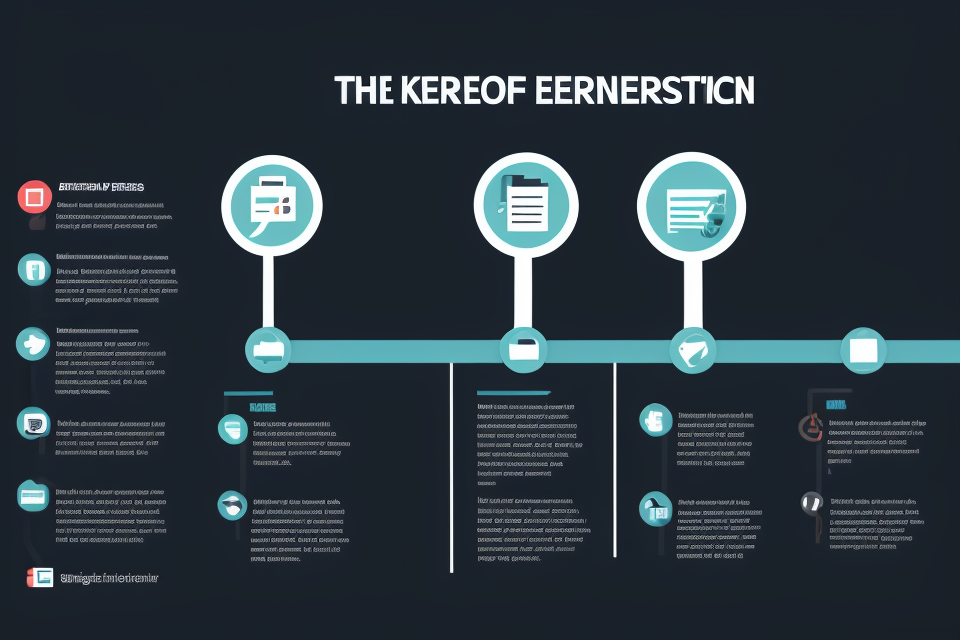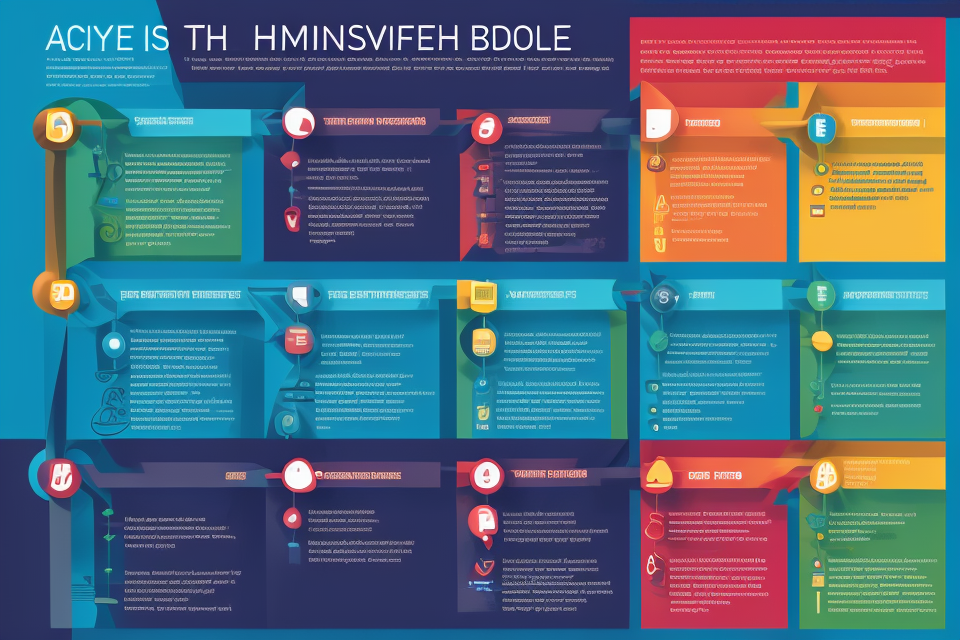Embarking on the entrepreneurial journey is a daunting task that requires passion, dedication, and a strong drive to succeed. Being an entrepreneur is not just about creating a business; it’s about taking risks, overcoming challenges, and making a difference in the world. In this guide, we will explore the pros and cons of being an entrepreneur, to help you decide if this path is right for you. We will delve into the advantages of being your own boss, having the freedom to make decisions, and creating something from scratch. However, we will also discuss the disadvantages of long working hours, financial risks, and the potential for personal sacrifices. So, buckle up and let’s explore the exciting world of entrepreneurship!
Understanding Entrepreneurship
What is entrepreneurship?
Definition of entrepreneurship
Entrepreneurship is the process of designing, launching, and operating a new business venture in order to make a profit. It involves identifying a need in the market, developing a solution to that need, and taking risks to turn that solution into a successful business.
Characteristics of an entrepreneur
Successful entrepreneurs share certain characteristics, such as:
- A strong desire to be in control of their own destiny
- A willingness to take risks
- The ability to think creatively and come up with innovative solutions
- Good communication and networking skills
- The ability to adapt to changing circumstances
Importance of entrepreneurship in the economy
Entrepreneurship plays a crucial role in the economy by driving innovation, creating jobs, and fostering economic growth. New businesses create competition in the market, which can lead to better products and services for consumers. Additionally, entrepreneurship can help to stimulate economic development in underserved communities and promote social change.
Types of entrepreneurship
There are various types of entrepreneurship that individuals can pursue, each with its own unique set of advantages and disadvantages. The following are some of the most common types of entrepreneurship:
- Solo entrepreneurship
Solo entrepreneurship, also known as “solopreneurship,” is a type of entrepreneurship where an individual starts and runs a business on their own. This type of entrepreneurship is often pursued by individuals who want to be their own boss and have complete control over their business. - Partnership entrepreneurship
Partnership entrepreneurship involves two or more individuals starting and running a business together. This type of entrepreneurship can be beneficial as it allows individuals to share responsibilities, skills, and resources. However, partnerships can also be challenging as disagreements and conflicts may arise between partners. - Franchise entrepreneurship
Franchise entrepreneurship involves buying into an existing business model and operating a franchise location. This type of entrepreneurship can be less risky as it involves using an established business model and support from the franchisor. However, franchisees must also follow strict guidelines and pay ongoing fees to the franchisor. - Social entrepreneurship
Social entrepreneurship involves starting a business with the goal of solving social or environmental problems. This type of entrepreneurship can be rewarding as it allows individuals to make a positive impact on society. However, social entrepreneurs may face challenges in generating revenue and sustaining their business in the long-term.
Advantages of Being an Entrepreneur
Flexibility and autonomy
Being an entrepreneur offers the advantage of flexibility and autonomy in various aspects of one’s professional life. This includes:
Creating your own schedule
One of the most significant benefits of being an entrepreneur is the ability to create your own schedule. You can determine when you want to work, when you want to take breaks, and when you want to attend meetings or events. This flexibility allows you to balance your personal and professional life more effectively, making it easier to achieve a healthy work-life balance.
Being your own boss
As an entrepreneur, you are your own boss, which means you have the freedom to make decisions without interference from others. This autonomy allows you to set your own goals, prioritize your tasks, and make decisions based on your own values and beliefs. This level of control can be empowering and can lead to a greater sense of accomplishment and satisfaction in your work.
Making decisions without interference
In addition to being your own boss, being an entrepreneur also means you have the freedom to make decisions without interference from others. This autonomy can be particularly beneficial when it comes to making strategic decisions for your business. You can evaluate the available options, weigh the pros and cons, and make a decision based on what you believe is best for your business, without the influence of others.
Overall, the flexibility and autonomy that come with being an entrepreneur can be incredibly rewarding. It allows you to create a professional life that aligns with your personal values and goals, and can lead to a greater sense of satisfaction and fulfillment in your work.
Financial gain
One of the most significant advantages of being an entrepreneur is the potential for financial gain. This includes the possibility of earning a high income, building wealth, and creating a profitable business.
- Earning potential: As an entrepreneur, you have the potential to earn a substantial income, particularly if your business is successful. This can include a base salary, as well as bonuses and other forms of compensation.
- Building wealth: Entrepreneurship can also provide opportunities to build wealth over time. This may include the potential for significant profits from the sale of a business, as well as the ability to invest in other ventures and grow your financial portfolio.
- Creating a profitable business: Another advantage of being an entrepreneur is the ability to create a profitable business. This can provide a steady stream of income, as well as the potential for growth and expansion. Additionally, a successful business can also increase your personal net worth and provide a valuable asset for the future.
Personal growth and development
Becoming an entrepreneur can be a life-changing experience that leads to personal growth and development. It provides individuals with an opportunity to learn new skills, develop leadership abilities, and take calculated risks. Here are some of the ways in which entrepreneurship can contribute to personal growth:
- Learning new skills: As an entrepreneur, you’ll be constantly learning new skills. Whether it’s learning how to manage finances, market your business, or develop a product, the experience of running your own business will expose you to a wide range of new skills. This can be incredibly rewarding, as you’ll be able to develop new talents and abilities that you might not have had the chance to explore otherwise.
- Developing leadership abilities: Entrepreneurship is all about leading by example. As an entrepreneur, you’ll be responsible for making important decisions, managing a team, and building a successful business. This can help you develop important leadership skills, such as communication, decision-making, and problem-solving. By taking on these responsibilities, you’ll be able to grow as a leader and develop skills that can be applied in all areas of your life.
- Taking calculated risks: One of the most exciting aspects of entrepreneurship is the opportunity to take calculated risks. Whether it’s investing in a new product or expanding your business, entrepreneurship involves taking risks that can lead to significant rewards. However, it’s important to approach these risks with caution and to carefully consider the potential outcomes. Taking calculated risks can help you develop resilience, learn from failure, and grow as an entrepreneur.
Overall, entrepreneurship can be a highly rewarding experience that provides individuals with numerous opportunities for personal growth and development. Whether it’s learning new skills, developing leadership abilities, or taking calculated risks, the experience of running your own business can be incredibly enriching and can help you grow as a person.
Making a difference
Entrepreneurship offers a unique opportunity to make a positive impact on the world. Here are some ways in which entrepreneurs can make a difference:
Solving problems in the community
Entrepreneurs often identify problems in their communities and create businesses that offer solutions. For example, an entrepreneur may start a business that provides affordable housing, clean energy, or healthy food options. By addressing these problems, entrepreneurs can improve the quality of life for people in their communities.
Creating jobs
Entrepreneurs can also create jobs, which can have a positive impact on the local economy. When entrepreneurs create successful businesses, they can provide employment opportunities for people in their communities. This can help reduce unemployment rates and improve the standard of living for people in the area.
Improving people’s lives
Finally, entrepreneurs can improve people’s lives by providing innovative products and services. For example, an entrepreneur may create a new technology that makes people’s lives easier or a new healthcare product that improves people’s health. By creating products and services that people need and want, entrepreneurs can make a positive impact on people’s lives.
Overall, being an entrepreneur can be a rewarding experience for those who want to make a difference in the world. By identifying problems and creating solutions, entrepreneurs can improve the lives of people in their communities and beyond.
Disadvantages of Being an Entrepreneur
Financial risk
Starting a business with little capital
One of the most significant financial risks associated with entrepreneurship is starting a business with little capital. Many entrepreneurs start their businesses with limited resources, often using personal savings or borrowing money from friends and family. While this can be an effective way to get a business off the ground, it also means that the entrepreneur is taking on a significant financial risk. If the business fails, the entrepreneur may lose their personal savings, which can have severe consequences for their financial well-being.
Facing potential bankruptcy
Another financial risk associated with entrepreneurship is the potential for bankruptcy. Starting a business involves taking on debt, and if the business does not perform as expected, the entrepreneur may be unable to repay their debts. This can lead to bankruptcy, which can have long-lasting consequences for the entrepreneur’s financial health and reputation. Entrepreneurs must carefully manage their finances and assess the risks associated with their business to avoid bankruptcy.
Losing personal savings
Finally, entrepreneurs also face the risk of losing their personal savings if their business fails. Many entrepreneurs invest their personal savings into their business, and if the business does not succeed, they may lose their entire savings. This can be a significant financial setback, and it may take years to recover from the loss. Entrepreneurs must carefully weigh the risks and rewards of starting a business before investing their personal savings.
Time commitment
Being an entrepreneur requires a significant amount of time and effort. It is not an easy road, and many people who start their own businesses find that they have to work long hours to get their venture off the ground. In fact, it is not uncommon for entrepreneurs to work more than 50 hours per week, especially during the early stages of their business.
One of the biggest challenges of being an entrepreneur is finding a balance between work and personal life. Many entrepreneurs find that they have to sacrifice their personal time to focus on their business, which can lead to a lack of work-life balance. This can take a toll on an entrepreneur’s mental and physical health, leading to burnout and stress.
Moreover, entrepreneurs often miss out on personal events such as family gatherings, birthdays, and other social events. This can lead to strained relationships with loved ones, who may feel neglected or abandoned by the entrepreneur.
While the rewards of being an entrepreneur can be significant, it is important for individuals to understand the time commitment required to build a successful business. Entrepreneurs must be willing to put in the hard work and dedication necessary to make their venture a success, even if it means sacrificing personal time and relationships.
Stress and pressure
Being an entrepreneur comes with a unique set of challenges that can lead to significant stress and pressure. The uncertainty of starting a new business, managing finances, and making crucial decisions can all contribute to the high levels of stress experienced by entrepreneurs.
Dealing with uncertainty
One of the most significant sources of stress for entrepreneurs is the uncertainty that comes with starting a new business. There is no guarantee of success, and the risk of failure can be daunting. This uncertainty can lead to anxiety and sleepless nights as entrepreneurs grapple with the potential consequences of their decisions.
Handling financial pressures
Financial pressures are another significant source of stress for entrepreneurs. Managing cash flow, paying bills, and ensuring that there is enough money to cover expenses can be a constant worry. Additionally, entrepreneurs are often responsible for investing their own money into the business, which can add to the financial pressure and stress levels.
Making tough decisions
Entrepreneurs are often faced with difficult decisions that can have a significant impact on the success of their business. These decisions can range from hiring and firing employees to choosing between investing in new equipment or expanding the business. The weight of these decisions can be overwhelming and lead to feelings of stress and pressure.
In conclusion, being an entrepreneur comes with a significant amount of stress and pressure. From dealing with uncertainty to handling financial pressures and making tough decisions, entrepreneurs must be prepared to face these challenges head-on. It is essential to develop coping mechanisms and seek support from others to manage these stressors and maintain mental health.
Social isolation
One of the major disadvantages of being an entrepreneur is the potential for social isolation. Many entrepreneurs work alone, often from home or a small office, and do not have the opportunity for regular interaction with colleagues. This lack of social interaction can lead to feelings of isolation and loneliness, which can negatively impact mental health and overall well-being.
Moreover, entrepreneurs often have to sacrifice personal relationships in order to dedicate more time and energy to their business. Long hours spent working on the business can lead to neglect of personal relationships, causing strain on family and friendships. This can lead to feelings of guilt and can make it difficult to maintain a healthy work-life balance.
However, there are ways for entrepreneurs to combat social isolation. Joining networking groups, attending industry events, and connecting with other entrepreneurs online can provide opportunities for social interaction and support. Additionally, hiring employees or working with business partners can also help alleviate feelings of isolation and provide a sense of camaraderie.
FAQs
1. What does it mean to be an entrepreneur?
Being an entrepreneur means taking on the responsibility of starting and running a business venture, often with the aim of earning a profit. It involves identifying a need in the market, developing a product or service to meet that need, and managing the business operations to ensure its success.
2. Is being an entrepreneur a good thing?
Being an entrepreneur can be a good thing for those who have the drive, passion, and skills to start and run a successful business. It can provide opportunities for personal growth, financial independence, and creative expression. However, it also comes with risks and challenges, and not everyone will find success as an entrepreneur.
3. What are the pros of being an entrepreneur?
The pros of being an entrepreneur include the potential for financial gain, the ability to be your own boss, the opportunity to pursue your passions and interests, and the potential for personal and professional growth. Additionally, entrepreneurship can lead to innovation and the creation of new products and services that benefit society.
4. What are the cons of being an entrepreneur?
The cons of being an entrepreneur include the risk of financial loss, the pressure to succeed, the long hours and hard work required to get a business off the ground, and the potential for personal and professional isolation. Additionally, entrepreneurship can be stressful and can take a toll on mental and physical health.
5. What skills do I need to be an entrepreneur?
To be a successful entrepreneur, you need a combination of skills including creativity, problem-solving, leadership, communication, and financial management. You also need to be able to identify and take calculated risks, and have the ability to adapt to changing circumstances.
6. How do I know if entrepreneurship is right for me?
Entrepreneurship may be right for you if you have a passion for a particular product or service, the drive to take risks and work hard, and the ability to lead and manage a team. It’s important to consider your strengths and weaknesses, and to research the market and industry you’re interested in before taking the leap into entrepreneurship.
7. What are the steps to becoming an entrepreneur?
The steps to becoming an entrepreneur include identifying a business idea, conducting market research, developing a business plan, securing funding, and launching and growing your business. It’s important to be prepared for the challenges and setbacks that come with starting a business, and to be willing to learn and adapt along the way.



